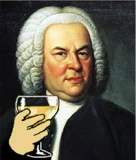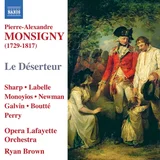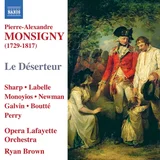A thread dedicated to Classical & Orchestral music
Symphonies, Operas, Group or Lone Performance.
Folk would normally be excluded however I see no need to do that here.
Console:
X
CLEAR CONSOLE
/mu/ - Music
168863975...png

(830.44 KB
800x600
)

Wrote a guide to baroque music initially for 4chan to get people interested into it. but i thought id post it here for those whod appreciate
Generally you need to understand the forms utilized in order to have any beyond surface-level appreciation, luckily I can at least spoonfeed you four common forms you can sink your teeth into quite easily and can get you into listening Baroque music like Bach, Vivaldi and Handel
#1 Ritornello
This one is commonly found in Baroque concertos and is quite simple to follow: A melody is introduced in the beginning of the movement that keeps getting repeated, in-between each repetition you have the solo instruments playing a solo over the chord progression of the melody.
Examples:
https://youtu.be/lQLjP7x3Dug [Play]
https://youtu.be/ybwSoY5BuwY [Play]
https://www.youtube.com/watch?v=jfH3Gfkgzm8 [Play]
https://youtu.be/yHSstJusbWI [Play]
2# Binary Form
The simplest one of the period, this has two sections: An A-section that repeats once, and then a B-section that repeats once (Note that the performer might also choose to not repeat the sections sometimes). That is it. It is quite simple but quite effective. You will be hearing this one a lot when listening to Baroque music. Most often found in suites (sometimes called Partitas), where all movements besides the prelude will be some type of binary form piece.
Examples:
Basically every movement in these pieces after their respective preludes
https://www.youtube.com/watch?v=GMkmQlfOJDk [Play]
https://www.youtube.com/watch?v=QmJpbCLZpk8 [Play]
https://www.youtube.com/watch?v=mGQLXRTl3Z0 [Play]
cont
156943921...png

(549.19 KB
482x565
)

3# The Fugue
One of the most important of the period and one of the hardest forms to write, luckily it is not too difficult to listen to if you pay attention. The fugue has it's history in Gregorian chant, and therefore is written as if it were a vocal composition utilizing different "voices" which are slotted into each vocal voice range.
A fugue begins with an exposition, this is the most important part for you to pay attention to: A single voice will introduce the subject (i.e main melody) of the fugue, this subject will then be repeated in another voice with the previous voice providing counterpoint (Different melodies that are meant to harmonize the main melody while also standing on their own). This repeats until every voice has played the melody once. After this, it is not too dissimilar from a ritornello (at least in the case of Bach), with the main melody returning in different voices. There will also often be counter-subjects present that also return, but this depends on the fugue.
You will see the fugue almost everywhere in Baroque music (Note that most fugues are accompanied by a prelude, as noted in most titles. The prelude in the examples I give and 99% of the time is melodically disconnected from the fugue and mainly serves as a free form movement. Still, attention is warranted as they are as important as the fugue in terms of the overall expierence.)
Examples:
https://www.youtube.com/watch?v=Bbox4oi6HjA [Play]
https://www.youtube.com/watch?v=Pfnkz1cFp8g [Play]
https://youtu.be/BoXCHmLqh9k [Play]
4# Theme and Variations
You will find this one in almost all periods of classical music and therefore also the Baroque period. In it's early usage mainly used for church hymn melodies, it provides a main theme with a simple harmonization that then gets variations placed upon it based on that original theme.
Examples:
https://www.youtube.com/watch?v=yF-2aJY6dpo [Play]
https://youtu.be/qnCqOKE9N4Y [Play]
https://www.youtube.com/watch?v=BYfKWyeichE [Play]
Happy listening, anons!
>>300
>>301
Thank you for going to that effort anon, but I think that those pieces are too mediocre. There must surely be something better out of Cambridge University, or by the British, French or German Orchestras?
You don't want a boring lesson. You want to inspire!
>>302
Bach is anything but mediocre
Flaming over Bach is truly one of 22chan's oldest traditions
Brahms' 4th symphony and his Piano Concerto no. 1 are absolutely masterful. Some of the greatest pieces in the canon IMO









